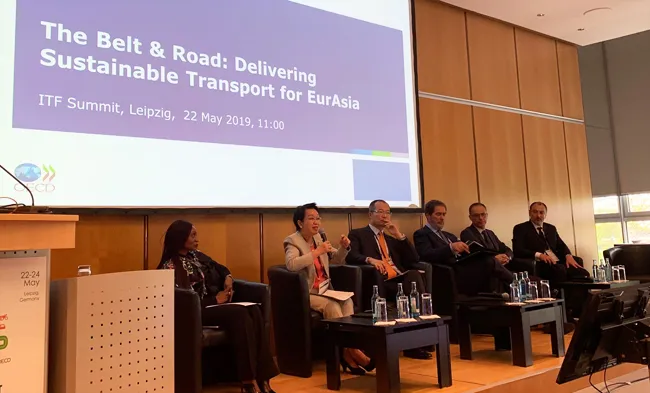The French government has replaced its public private partnership advisory agency ahead of incoming laws to make P3 contracts easier to process and manage.
The Mission d'appui aux Partenariats Public-Privé (MAPPP) is replaced by Fin Infra, the Mission d’appui au financement des infrastructures.
Fin Infra has extended powers and more personnel over MAPPP. Unlike its predecessor, it will be able to provide advice on concession contracts and other forms of public-private contracting, rather than just pub
May 23, 2016
Read time: 2 mins
The French government has replaced its public private partnership advisory agency ahead of incoming laws to make P3 contracts easier to process and manage.
The Mission d'appui aux Partenariats Public-Privé (MAPPP) is replaced by Fin Infra, the Mission d’appui au financement des infrastructures.
Fin Infra has extended powers and more personnel over MAPPP. Unlike its predecessor, it will be able to provide advice on concession contracts and other forms of public-private contracting, rather than just public private partnerships.
MAPPP director Salim Bensmail has taken over to lead Fin Infra on a temporary basis, according to French media reports.
Project finance lead Stéphane Gasne of law firm Pinsent Masons said that Fin would contribute to the recovery of France's infrastructure market.
"The MAPPP transformation into Fin Infra, with extended powers and additional team members, will help standardise market practices by spreading the knowledge of adequate allocation of risks for bankable projects among public clients," he said.
New PPP laws came into force in France at the start of April, removing the previous complexity and urgency requirements. PPP projects need now only pass a value for money test.
Salim Bensmail has held positions in the financial services industry and at the City of Paris, including as deputy-director for financial Affairs in charge of P3s and director for economic development. He has been involved in structuring infrastructure projects, including water management, stadiums, convention centres, highways and toll roads. He is a Salim a graduate of Ecole Nationale d’Administration and Institut d’Etudes Politiques de Paris and holds an MPhil in Economics from the University of Cambridge in the United Kingdom.
The Mission d'appui aux Partenariats Public-Privé (MAPPP) is replaced by Fin Infra, the Mission d’appui au financement des infrastructures.
Fin Infra has extended powers and more personnel over MAPPP. Unlike its predecessor, it will be able to provide advice on concession contracts and other forms of public-private contracting, rather than just public private partnerships.
MAPPP director Salim Bensmail has taken over to lead Fin Infra on a temporary basis, according to French media reports.
Project finance lead Stéphane Gasne of law firm Pinsent Masons said that Fin would contribute to the recovery of France's infrastructure market.
"The MAPPP transformation into Fin Infra, with extended powers and additional team members, will help standardise market practices by spreading the knowledge of adequate allocation of risks for bankable projects among public clients," he said.
New PPP laws came into force in France at the start of April, removing the previous complexity and urgency requirements. PPP projects need now only pass a value for money test.
Salim Bensmail has held positions in the financial services industry and at the City of Paris, including as deputy-director for financial Affairs in charge of P3s and director for economic development. He has been involved in structuring infrastructure projects, including water management, stadiums, convention centres, highways and toll roads. He is a Salim a graduate of Ecole Nationale d’Administration and Institut d’Etudes Politiques de Paris and holds an MPhil in Economics from the University of Cambridge in the United Kingdom.








